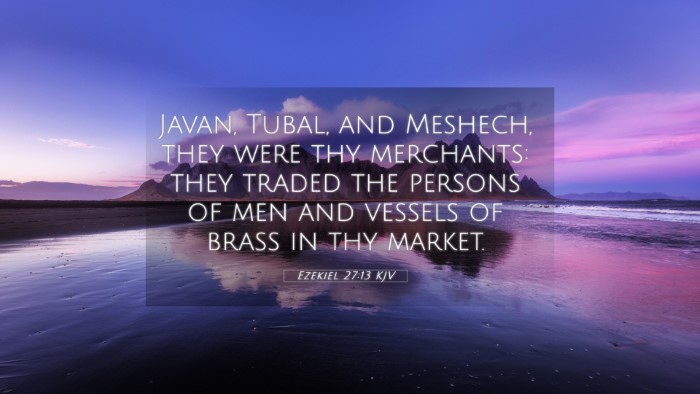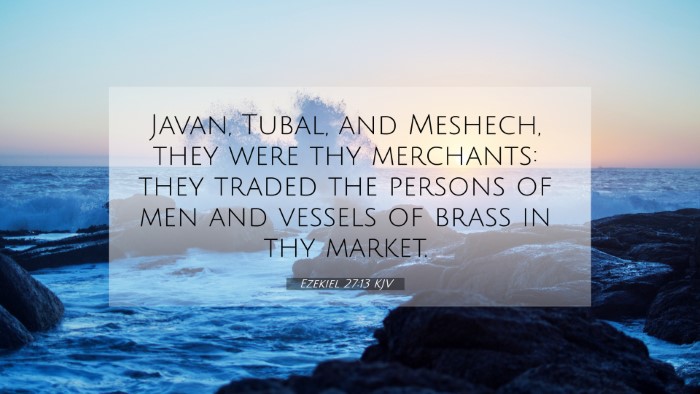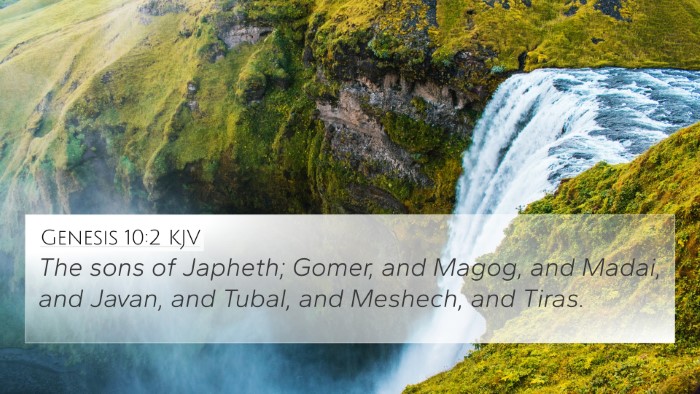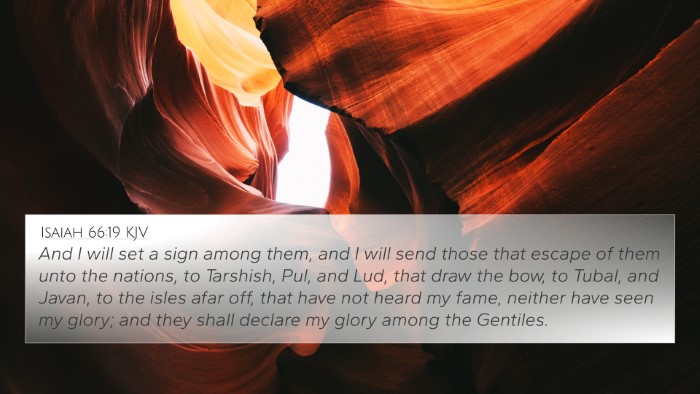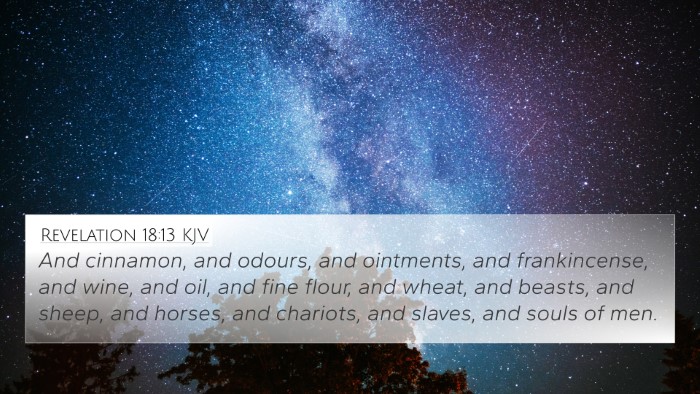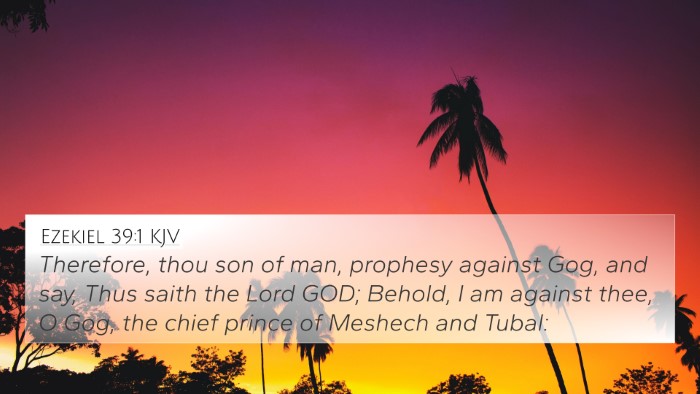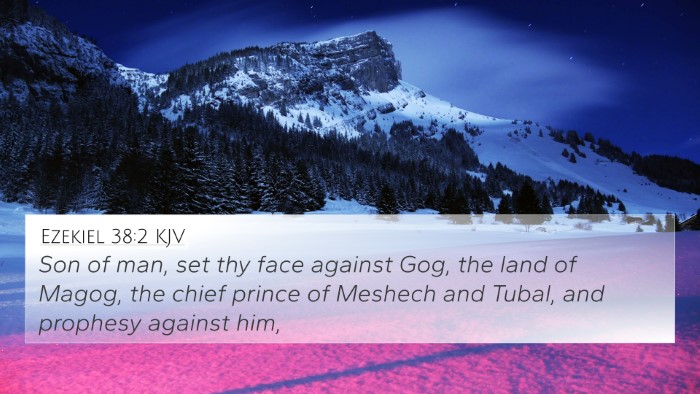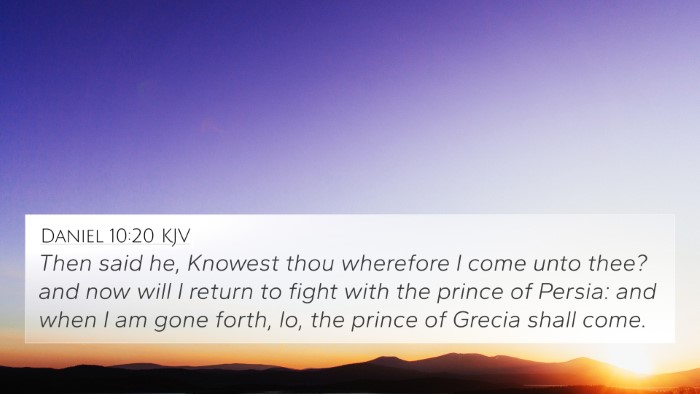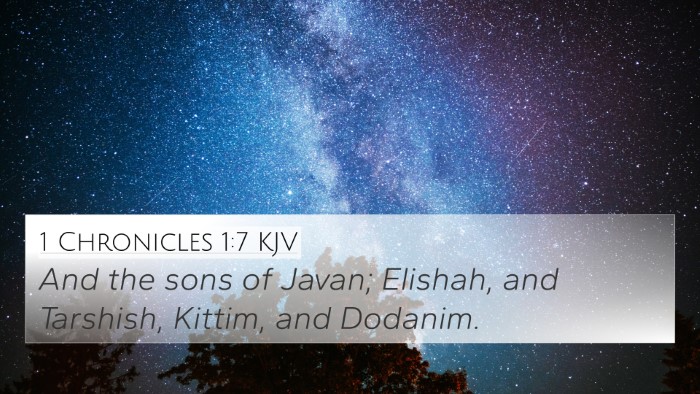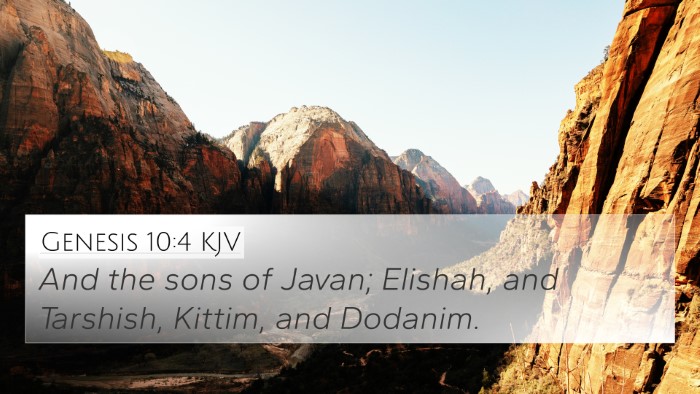Understanding Ezekiel 27:13
Ezekiel 27:13 states: "Javan, Tubal, and Meshech were your merchants; they exchanged human beings and articles of bronze for your merchandise."
Summary of Insights from Public Domain Commentaries
The verse emphasizes the economic relationships between ancient nations and the trading practices prevalent during that time. It highlights how these nations engaged in trade not only of goods but also of human beings, indicating a serious moral implication.
Insights from Matthew Henry
According to Matthew Henry, the mention of Javan, Tubal, and Meshech symbolizes places known for their trading activities. He emphasizes that the trade involved significant moral issues, particularly concerning the trading of human lives. This highlights the degradation of humanity and the consequences of prioritizing profit over ethical considerations.
Insights from Albert Barnes
Albert Barnes points out that Ezekiel describes a time when nations collaborated for economic gain, and this verse underscores the complexity of international trade in antiquity. Barnes also warns readers to consider the historical context of such transactions and the implications of a society willing to engage in the slave trade for profit.
Insights from Adam Clarke
Adam Clarke elaborates on the significance of the regions mentioned, associating them with the exchange of goods that were critical to the economy of Tyre, which is the subject of Ezekiel's prophecy. Clarke notes the importance of recognizing the type of goods traded and the moral decay represented by such commerce.
Connections to Other Bible Verses
This verse has thematic connections to several other scripture passages, reflecting themes of commerce, morality, and human value.
- Leviticus 25:39-43 - Discusses the ethical treatment of servants and slaves, contrasting the transaction in Ezekiel.
- Deuteronomy 24:7 - Addresses the abduction of individuals for slavery, highlighting the moral implications present in Ezekiel.
- Isaiah 23:17 - Describes the doomed trade practices of Tyre, closely linking the narrative of economic practices.
- Jeremiah 34:8-22 - Relates to the release of slaves and moral obligations relating to servitude.
- Matthew 16:26 - Reflects on the value of the soul, contrasting the commodification of humans in trade.
- 1 Timothy 1:10 - Lists enslavers among the evildoers, providing a moral framework for understanding the practices mentioned in Ezekiel.
- Revelation 18:13 - Notes the trade of human souls among the merchants of Babylon, drawing parallels to Ezekiel’s lament.
Using Cross-References for Deeper Understanding
By engaging in cross-referencing Biblical texts, readers can gain a comprehensive view of the moral and ethical implications present in Ezekiel 27:13. Here are some tools and methods to aid in this study:
- Bible Concordance: Utilize a concordance to find related verses that discuss trade, morality, and human value.
- Bible Cross-Reference Guide: Consider using a guide that outlines thematic connections between various scriptures.
- Cross-Reference Bible Study: Employ techniques to explore connections across the Old and New Testaments for a richer understanding of themes.
- Bible Reference Resources: Utilize reference materials that elaborate on inter-Biblical dialogue regarding similar themes.
Thematic Connections and Comparative Analysis
Exploring the themes regarding trade, moral responsibly, and the nature of human dignity allows for a comparative analysis between Ezekiel and other scripture passages. Such analysis can enhance the reader's understanding of biblical ethics in trade.
Conclusion
In conclusion, Ezekiel 27:13 serves as a poignant reminder of the complexities of economic relationships and the consequential moral implications of such dealings. By integrating insights from respected biblical commentaries and engaging in cross-referencing with other scriptures, readers can gain a profound understanding of this passage's significance.

